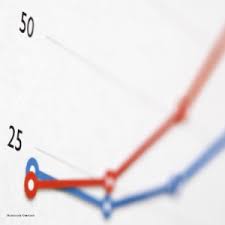 Wellington's economy is in good shape according to a quarterly report, which shows a strong performance across retail, house sales and accommodation.
Wellington's economy is in good shape according to a quarterly report, which shows a strong performance across retail, house sales and accommodation.
However, it still falls behind the national average in some sectors, including house prices, GDP, vehicle registrations and residential consents.
The economic monitor by Infometrics, commissioned by Wellington City Council, shows economic growth of 2.6 per cent over the year to June 2015, up from 1.7 per cent growth last year. This was slightly behind the national lift of 3.1 per cent.
House sales climbed 11 per cent over the quarter and house prices lifted by 2.0 per cent.
Nationally, house prices rose by 9.3 per cent.
Increasing business activity in Wellington, coupled with downward pressure on domestic airfares, was pushing up domestic travel to Wellington, the report says.
Guest nights in Wellington were up 7.3 per cent over the June year, well above the 5.3 per cent growth seen nationally.
International guest nights were also climbing and, with the lower New Zealand dollar pushing up foreign visitors' purchasing power, the growth looked set to continue.
The weaker dollar may also encourage more international students to study in Wellington, the report says.
Against a backdrop of rising business and visitor activity, electronic card spending data from Marketview shows the value of retail sales in Wellington City to June 2015 was up 3.5 per cent.
Spending on larger ticket items such as cars and commercial vehicles continued to grow.
However sales volumes were expected to taper off as the weaker dollar put upward pressure on vehicle prices.
First Retail Group managing director Chris Wilkinson said he had seen a lot of confidence in the sector. His company worked with different types of businesses in New Zealand and overseas.
Confidence in the city was spurred by new developments and retailers moving to bigger premises.
"There is also an appetite from retailers in Auckland and Australia to move into the Wellington market, which has come from the spending figures and David Jones moving into the city," he said.
Wellington Chamber of Commerce chief executive John Milford said it was encouraging to see the majority trends moving in the right direction, though when compared to the national averages Wellington had some way to go.
It was positive to see guest nights increased as a result of some high profile events, which had translated into higher retail spending.
Migrant numbers were also up, which was positive, he said.
"Though our total regional share is only 3.2 per cent of all international net migration in New Zealand, so we can do better."
Non-residential consents were also up and above the national average.
"This is positive for Wellington as it means we're improving our commercial stock, likely to be in part due to earthquake strengthening, as well as new buildings and alterations."
Wellington City Council economic growth committee chairwoman Jo Coughlan said strong confidence in the city and region confirmed the city had a good base to work from.
Wellington had been growing year-on-year since 2011, she said.
"Wellington has a diverse and resilient economy. We have a world-class public sector and our IT and creative industries continue to be strong."
A big programme of events such as the Cricket World Cup and Anzac centenary commemorations and exhibitions had provided a major boost to the accommodation and hospitality sectors, she said.
The report shows the number of people getting job seeker support in Wellington had increased but was smaller than the lift in net migration.
This shows labour demand in Wellington City was still elevated, the report says.
Recent results from the BNZ Business Performance of Services Index suggest that employment in Wellington's large service sector was likely to expand further.
.png)




.png?width=200&height=100&name=RE%20Investar-Logo-MRI_Colour%20web%20229x115px%20(1).png)